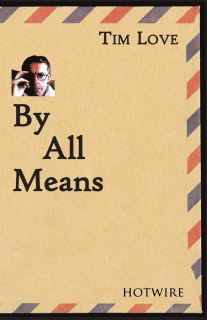On April 23rd, George Szirtes and some open-mikers gave a standing-room-only Cambridge CB1 audience an entertaining evening of sonnets. The sheer volume of Szirtes' output can be intimidating. His 2008 "New & Collected Poems" is 520 pages long, and he's kicked on since then, extending his range. Focusing on the sonnet only restricts him somewhat - he said he's written over 300 of them!
He highlighted the longevity and flexibility of the form. Those two features are probably related, but there might be psychological (or even physiological) reasons why the sonnet endures. Don Paterson in his "101 Sonnets" was prepared to include "any poem with fourteen lines". "The Reality Street Book of Sonnets" cast its net wider (download the Introduction). Szirtes didn't want to be pinned down to a definition, instead suggesting that a sonnet is like a room, with certain expectations of scale, proportion, purpose and intimacy that the poet can choose to ignore.
He studied Fine Art in London and Leeds, and was asked in the Q&A if there was a strong visual element during composition. After all, many of the sonnets he read were about colours. He replied that there was always a dialogue with words, each line/word capable of changing the course of the poem. Rhyming in particular can take you where you didn't plan to go. You need to be ready to follow. Curiosity and a non-doctrinaire openness to impressions seem to be a source of word production for him - liking a youtube clip, a colour, or a goal may provoke him to wonder what there is in the phenomenon that's interesting him.
I sometimes look upon the sonnet as a franchise. You buy into it to take advantage of the image. You might add some local variation (curried burgers maybe) but go too far and the parent company might disown you - you have a duty to the brand as well as your customers. I have trouble writing sonnets. Finding them a technical challenge I become too much of a slave to the brand. According to my notes I've published 9 sonnets. I don't recall most of them. Two are acrostics, of which I'm unjustly proud (one, called "Going down", reads "Cambridge Blues" down the left margin). I've recently entered a sonnet for the Ware Poetry Competition but only because the content determined the form. So like a fool I followed.
 My story collection "By All Means" (ISBN 978-0-9570984-9-7), published by Nine Arches Press, is on sale from
My story collection "By All Means" (ISBN 978-0-9570984-9-7), published by Nine Arches Press, is on sale from  My poetry pamphlet "Moving Parts" (ISBN 978-1-905939-59-6) is out now, on sale at the
My poetry pamphlet "Moving Parts" (ISBN 978-1-905939-59-6) is out now, on sale at the 
"Duty to the brand" - explain?
ReplyDeletealso, are all 14 line poems sonnets? I've been told they are. And been told they aren't.
"are all 14 line poems sonnets?" - I think Paterson's anthology includes a 14 line poem with one word per line. On the other hand, not all Shakespeare's sonnets have 14 lines.
ReplyDeleteIf Gerard Manley Hopkins, Tony Harrison, or Bob Cobbing call one of their sonnet-like poems a sonnet, I think the working definition of the form's extended. Anyone writing a self-proclaimed sonnet should to some extent expect it to be read in the context of the sonnet's changing image. If lots of "loose" sonnets appear in small mags, my sonnets will seem even more up-tight than they already are.
"Duty to the brand - explain?" - What I meant is that just as each sonnet anthology affects our notion of what a "sonnet" is, so (to a much lesser extent) each published self-proclaimed sonnet affects the situation too. If you feel that sonnets should have 14 lines, you shouldn't dilute the brand image by writing 16-line sonnets.
I guess it's healthy for any form of art to evolve. I asked the question, as I remember meeting the late John O'Leary's work, 14 very short lines, no overt rhyme to speak of, huge spaces, filling the page.. and loving it. It worked, seemed far less up itself than the stricter regimes. MInd you, in the strict ones, in today's lingo, I usually find form 'overtakes' content as opposed to 'sings alongside'. It fitted a couple of hundred years ago, not so much now. Course, there are exceptions - you naturally, and Lynn Roberts, to name a couple!
ReplyDeletePerhaps I can slip in here,Tim. It is I think the ability of the sonnet to evolve that has given it life. It may partly be that 14 lines is a very suitable space for a single complex thought or feeling to assume shape. I wouldn't say any 14 line poem is a sonnet, but any 14 line poem establises a very close relationship with the sonnet. As I said last night, a 13 line poem is one line short of a sonnet and a 15 line one one line over. The zone is that strong.
ReplyDeleteOn variants: Harrison was writing Meredithian sonnets, 16-liners adapted from George Meredith. My longest poem Metro consists of 60 13-line stanzas with occasional rhyme - one review called them sonnets (not that I thought they were, but they were a kind of invitation to sonnet content.)
ReplyDeleteThanks for the comments George, and the evening. As well as a range of styles and forms, the performers varied widely in experience. On http://profanepoet.wordpress.com/2013/04/24/reciting-my-first-sonnet/ one of the open-mikers writes about reciting their first sonnet at the event.
ReplyDelete